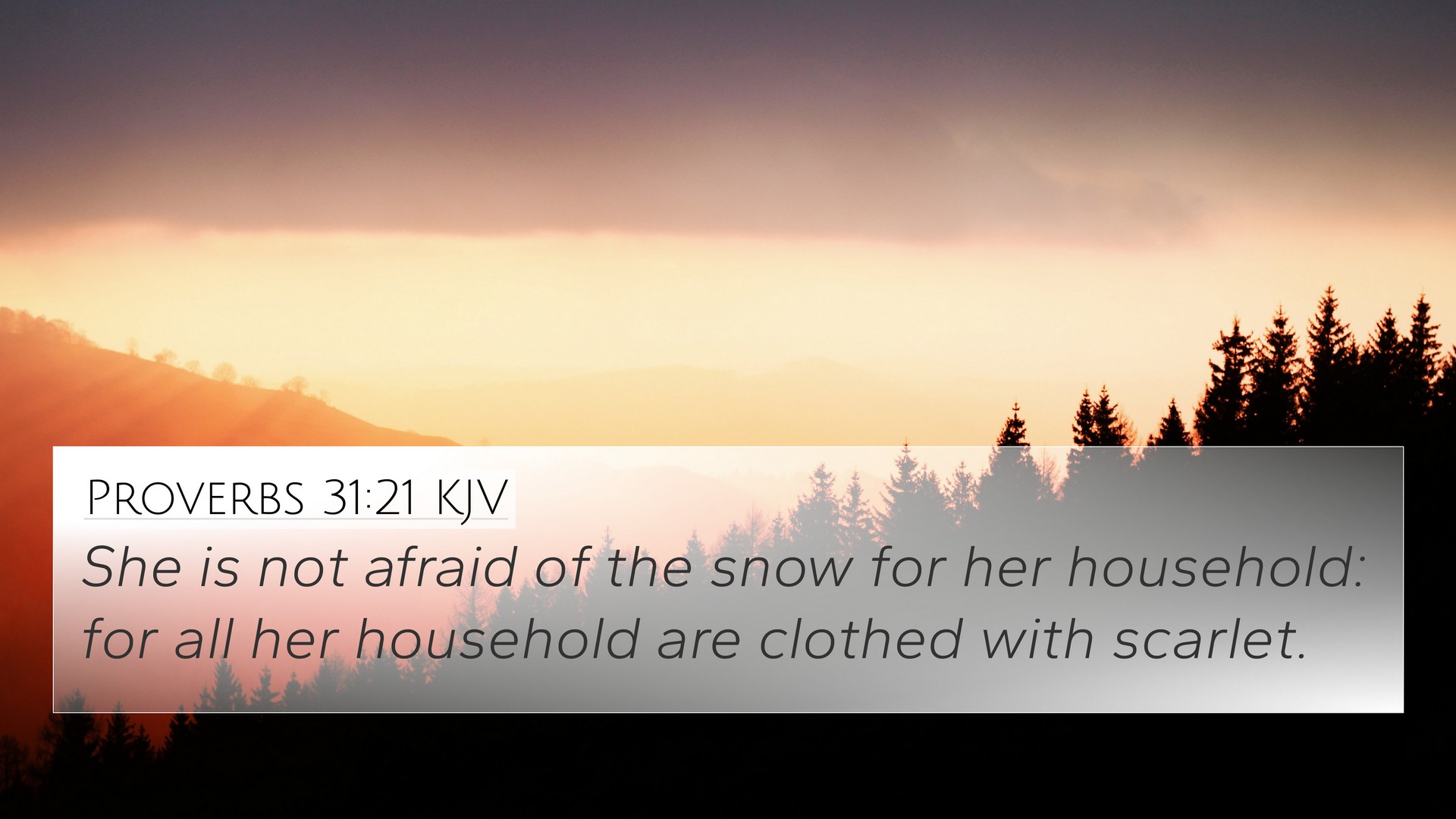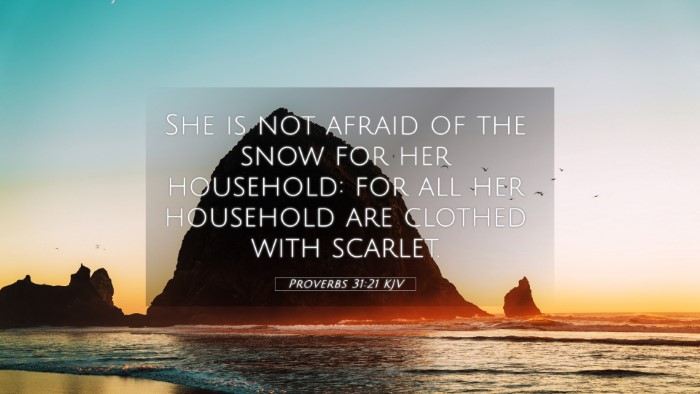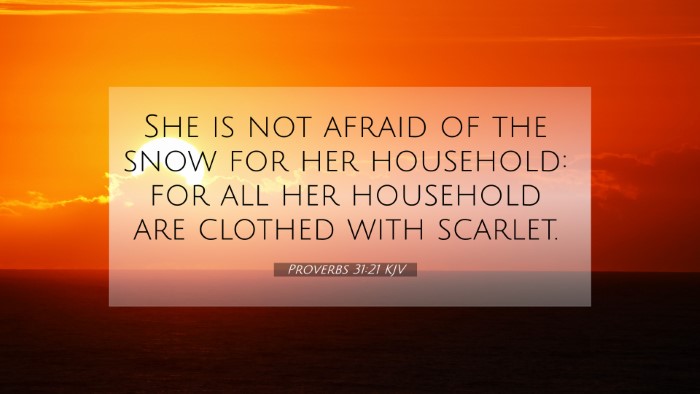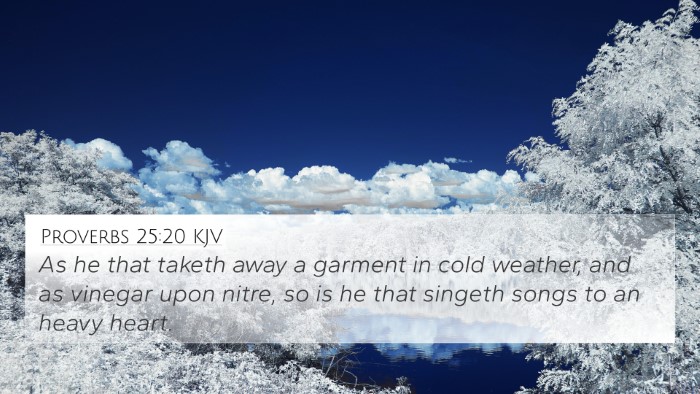Understanding Proverbs 31:21
Proverbs 31:21 states, "She is not afraid of the snow for her household: for all her household are clothed with scarlet." This verse highlights the qualities of a virtuous woman, focusing on her preparedness and care for her family.
Commentary Insights
The insights from public domain commentaries provide a rich understanding of this verse:
- Matthew Henry: He emphasizes the woman's foresight and diligence, noting that her readiness for winter reflects her wisdom and compassionate nature. Henry suggests that through her efforts, she ensures her family's comfort and security.
- Albert Barnes: Barnes points out that the mention of snow signifies challenges and difficulties that may arise. The woman's preparation demonstrates her ability to face adverse conditions without fear, a commendable trait that illustrates her strength and resolve.
- Adam Clarke: Clarke interprets the “scarlet” clothing as symbolic of warmth and protection. He indicates that the choice of material reflects not only physical comfort but also the status and dignity she provides for her household.
Key Themes and Interpretations
This verse encapsulates several key themes relevant to biblical understanding:
- Wisdom and Preparation: The virtuous woman's foresight prepares her household for the upcoming challenges, symbolizing wisdom in action.
- Security and Care: The mention of protection from snow highlights the importance of a secure and nurturing family environment.
- Diligence: Her efforts serve as a reminder of the tireless work that goes into managing a household.
Cross References
Proverbs 31:21 has several verses that relate to its themes of preparedness, care, and wisdom:
- Proverbs 31:25: "Strength and honor are her clothing; she shall rejoice in time to come." This verse highlights her strength and resilience.
- Matthew 7:24: "Therefore whosoever heareth these sayings of mine, and doeth them, I will liken him unto a wise man, which built his house upon a rock." This emphasizes the wisdom of preparation.
- 1 Timothy 5:8: "But if any provide not for his own, and specially for those of his own house, he hath denied the faith, and is worse than an infidel." This speaks to the duty of care for one's family.
- Proverbs 22:6: "Train up a child in the way he should go: and when he is old, he will not depart from it." This verse relates to nurturing and preparing the next generation.
- Proverbs 14:1: "Every wise woman buildeth her house: but the foolish plucketh it down with her hands." A direct reflection of the virtuous woman's influence on her family.
- Luke 12:42: "And the Lord said, Who then is that faithful and wise steward, whom his lord shall make ruler over his household, to give them their portion of meat in due season?" It speaks to the stewardship and management akin to the woman in Proverbs.
- Philippians 4:19: "But my God shall supply all your need according to his riches in glory by Christ Jesus." This scripture reassures the provision and care aspect of familial roles.
Application in Life
The principles drawn from Proverbs 31:21 can be applied in various ways:
- Encouragement for women: Women can find empowerment and inspiration from the virtuous woman's example, embracing their roles with confidence and diligence.
- Family Unity: Families are reminded of the importance of preparing for challenges together, fostering a spirit of unity and cooperation.
- Spiritual Vigilance: As believers, we are encouraged to remain watchful and prepared, applying the principles of wisdom in our spiritual lives.
Conclusion
Proverbs 31:21 serves as a powerful reminder of the virtuous woman’s role in the family, illustrating key biblical qualities such as diligence, wisdom, and care. Through cross-referencing this verse with others, one can uncover deeper theological insights and practical applications for everyday living. Embracing the themes encapsulated in this verse can lead to a more thoughtful and purposeful approach to family life and spiritual growth.





